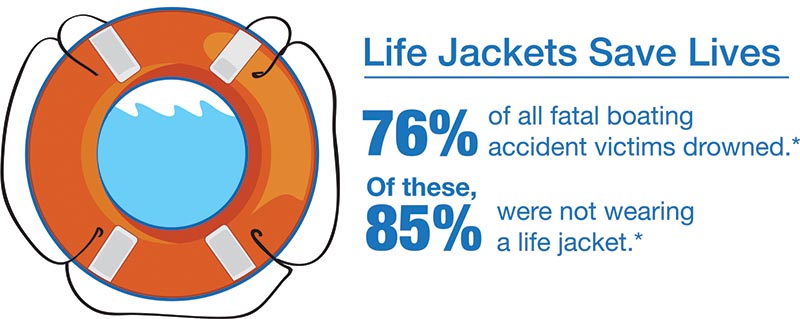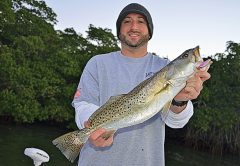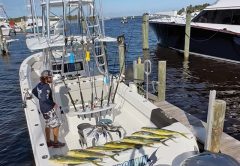National Safe Boating week is May 20-26, 2017. Here are ten boating safety tips to make your time on the water with family and friends safe and hopefully problem-free.
- Be Weather-Wise. Always check local weather conditions before departure. If you notice darkening clouds, volatile and rough changing winds or sudden drops in temperature, play it safe by getting off the water.
- Follow a Pre-Departure Checklist. Boating safety includes being prepared for any possibility on the water. Following a pre-departure checklist is the best way to make sure no boating safety rules or precautions have been overlooked or forgotten.
- Use Common Sense. One of the most important parts of boating safety is to use your common sense. This means operating at a safe speed at all times (especially in crowded areas), staying alert at all times and steering clear of large vessels and watercraft that can be restricted in their ability to stop or turn. Also, be respectful of buoys and other navigational aids, all of which have been placed there to ensure your own safety.
- Designate an Assistant Skipper. Make sure more than one person on board is familiar with all aspects of your boat’s handling, operations, and general boating safety. If the primary navigator is injured or incapacitated in any way, it’s important to make sure someone else can follow the proper boating safety rules to get everyone else back to shore.
- Develop a Float Plan. Whether you inform a family member or staff at your local marina, always be sure to let someone else know your float plan. This should include where you’re going and how long you’re going to be gone. It can include the following information: name, address, and phone number of trip leader; name and phone number of all passengers; boat type and registration information; trip itinerary; types of communication and signal equipment onboard, such as an Emergency Position Indicating Radio Beacon (EPIRB) or Personal Locator Beacon (PLB).
- Make Proper Use of Lifejackets. The majority of drowning victims are the result of boaters not wearing their lifejackets. Make sure that your family and friends aren’t part of this statistic by assigning and fitting each member of your onboard team with a life jacket prior to departure. Wear it!
- Avoid Alcohol. Save the alcohol for later. The probability of being involved in a boating accident doubles when alcohol is involved and studies have shown that the effects of alcohol are exacerbated by sun and wind.
- Learn to Swim. If you’re going to be in and around the water, proper boating safety includes knowing how to swim. Local organizations, such as the American Red Cross and others, offer training for all ages and abilities.
- Take a Boating Course. Beginning boaters and experienced experts alike need to be familiar with the boating safety rules of operation. Boater education requirements vary by state; however, some require validated completion of at least one boating safety course. Regardless of state’s requirements, it’s always important to be educated and prepared for every circumstance that might arise.
- Consider a Free Vessel Safety Check. Take advantage of a free vessel safety check from the US Coast Guard. They offer complimentary boat examinations to verify the presence and condition of safety equipment required by state and federal regulations. They’ll check out your boat and make helpful boating safety tips and recommendations
SOURCE: DiscoverBoating.com.





